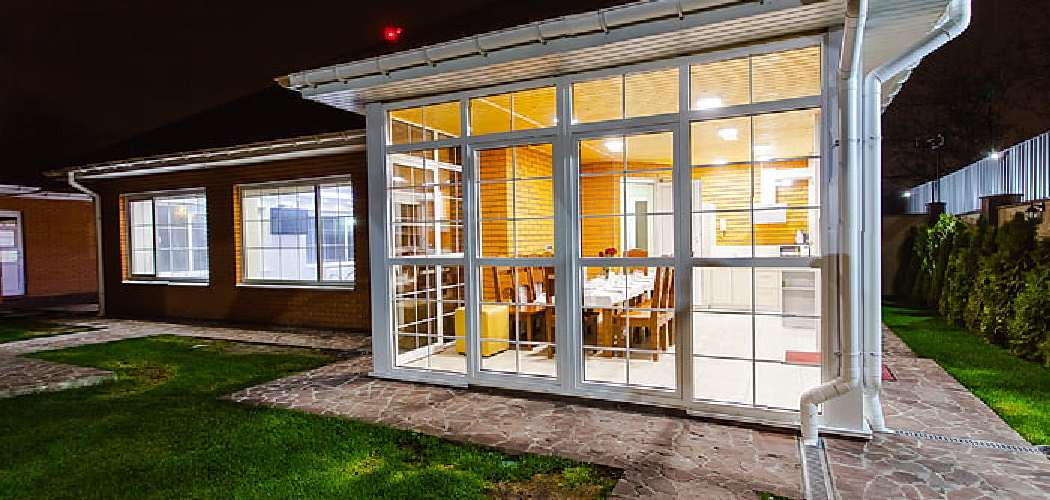Are you looking for an easy and effective way to extend your outdoor living area throughout the year? If so, enclosing your patio is a great solution! Investing in some materials, such as screening or plexiglass panels, allows you to turn your existing patio into a room that’s perfect for winter use.
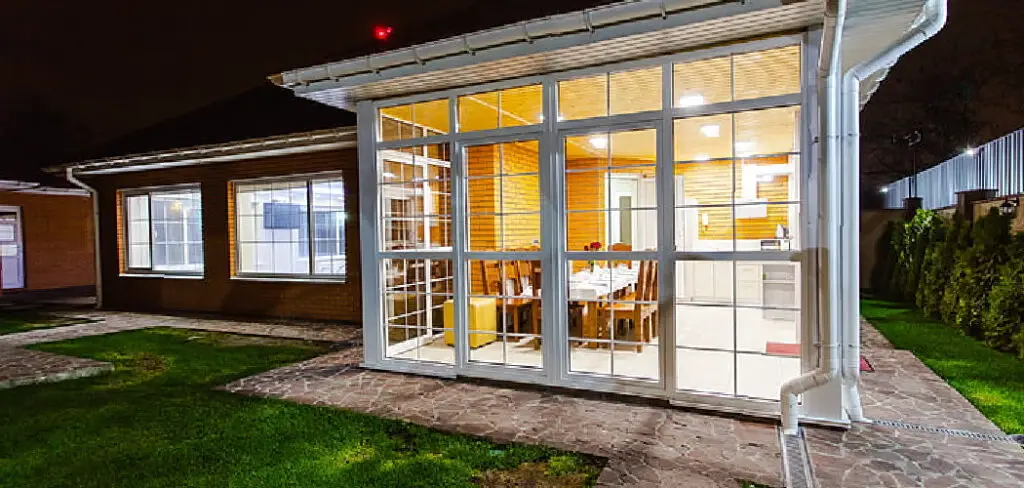
Not only will this allow you to utilize and entertain within this space all season long, but it also offers excellent protection from gusty winds and cold temperatures. Here, we’ll discuss how to enclose your patio for the winter.
It’s time to start thinking about winter and all the preparations that go with it. One of those important tasks is enclosing your patio for the colder months ahead. While this may sound daunting, with careful planning and proper preparation, you’ll have no problem protecting your outdoor space from snow and freezing temperatures.
In this blog post, we will discuss various methods for enclosing your patio so that it can be enjoyed year-round – even in winter!
Why Do You Need to Enclose Your Patio for the Winter?
You may need to enclose your patio for the winter for many reasons. Such as:
1. Prevent Potential Damages
One of the main reasons to enclose your patio for the winter is to prevent potential damages from occurring due to snow, ice, and wind. These issues can cause significant damage to furniture, plants, and other items on your patio if they are left exposed during a harsh winter.
2. Keep Out Pests
Another reason why you may want to enclose your patio for the winter is to keep out pests such as rodents, snakes, and other insects that may be attracted to warm areas in and around your home.
3. Protecting Plants and Vegetables
If you have any plants or vegetables growing on your patio, then enclosing them for the winter can help protect them from extreme weather conditions. This will help ensure that they grow to their full potential come springtime.
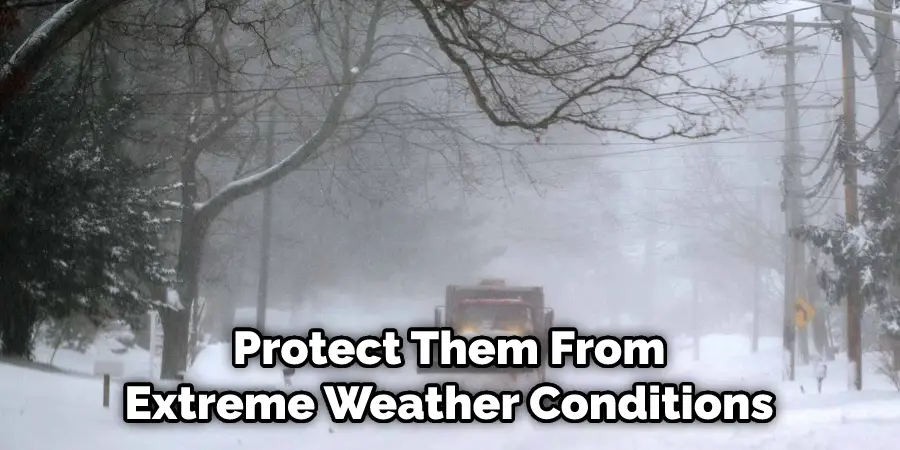
4. Economical
Enclosing your patio for the winter can also be a more economical option than other home improvement projects, such as adding additional insulation or replacing windows and doors.
By enclosing your patio correctly, you not only protect it from the elements but also create a space that can be used year-round. Whether you’re looking to use your patio as an outdoor living area or just a place to relax in the warmer months, it’s worth the effort of properly enclosing it for the winter.
How to Enclose Your Patio for the Winter in 7 Easy Steps
Step 1: Measure Your Patio
Before you begin your project, take some measurements of the space you’ll be enclosing. This will help you decide how much material and supplies you’ll need for the job.
Step 2: Choose a Material
There are various materials available for enclosing a patio, such as wood, plastic, or metal. Consider how your patio will be used during the winter and its aesthetic appeal and UV protection.
Step 3: Install Posts
You will need to install posts around the perimeter of your patio that can support the material you have chosen. Be sure to use heavy-duty materials like concrete blocks or steel posts for a secure installation.
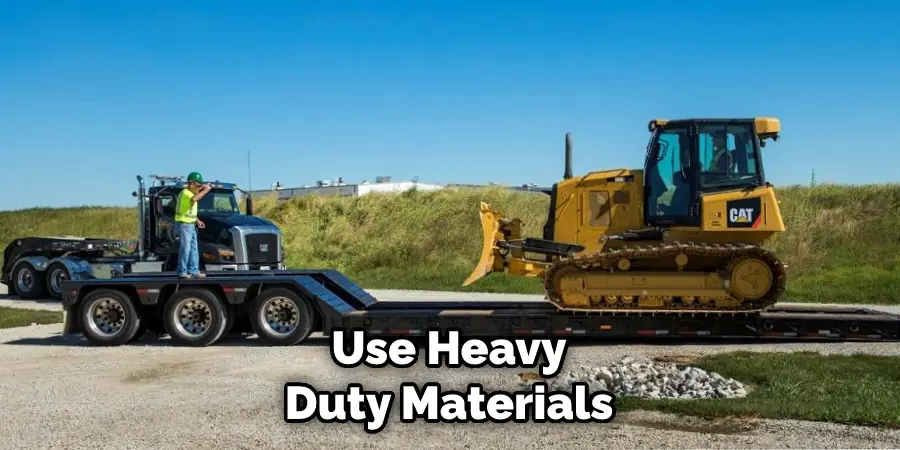
Step 4: Attach the Material
Once you have your posts in place, begin attaching your chosen material to them. Depending on what type of material you’ve selected, this may involve screws or other fasteners.
Step 5: Add Windows and Doors
If desired, add windows and doors to the enclosure so that you can still access your patio during the winter. These can be pre-made and purchased or custom-built.
Step 6: Seal Gaps
Be sure to caulk around any gaps in the material that could let air and moisture in, as well as insects and animals out. This will help keep your enclosure secure and prevent issues like mold growth or damage from the elements.
Step 7: Decorate
Finally, give your enclosure a personal touch by adding some decorations. This could include outdoor furniture, plants, or other items that will make your patio cozy and invite during winter.
By following these steps, you can easily enclose your patio for the winter and enjoy it year-round. Good luck!
Some Additional Tips to Enclose Your Patio for the Winter
1. Avoid Using Plastic Tarps or Fabric Covers
One of the most important things to remember when enclosing your patio for the winter is to avoid using plastic tarps or fabric covers. While these may be cheaper, they will not provide enough protection against snow and ice accumulation and can rip easily during high winds and storms.
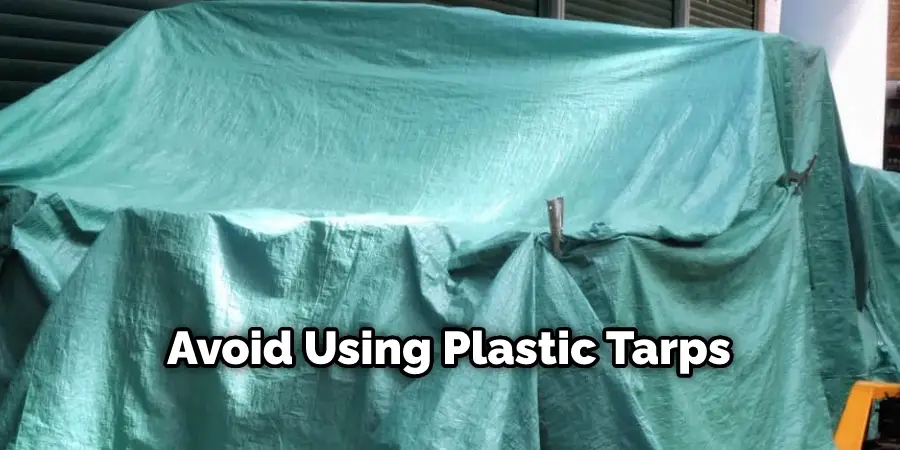
2. Choose the Right Type of Enclosure
When choosing the type of enclosure for your patio, you should consider the size and shape of your patio and the climate in which you live. Metal enclosures are great for colder climates since they will not be damaged by snow and ice buildup, but if you live in a warmer climate, then vinyl or plastic types of enclosures may work better.
3. Install a Heating Element
If you are looking for an extra layer of protection from the cold, then installing a heating element may be the way to go. This is especially useful if you live in an area that experiences extreme temperatures during winter. Having a heating element installed in your patio enclosure, it will help keep your space warm and comfortable during the winter months.
4. Pay Attention to Sealing and Insulation
It is also important to make sure that your patio enclosure is properly sealed and insulated. This will help keep out the cold air from outside as well as prevent any drafts from coming in through gaps or cracks in the walls or windows of your enclosure. Proper sealing and insulation will also help keep energy costs down during winter.
5. Make Sure to Inspect Regularly
Finally, it is important to inspect your patio enclosure regularly to make sure that it is holding up and functioning properly. Check for any signs of damage, such as cracks in the walls or windows, gaps in the sealant, and other problems that could cause the enclosure to become unsafe or less efficient.
Taking care of any issues as soon as you spot them will help keep your patio enclosure functioning properly for many winters to come.
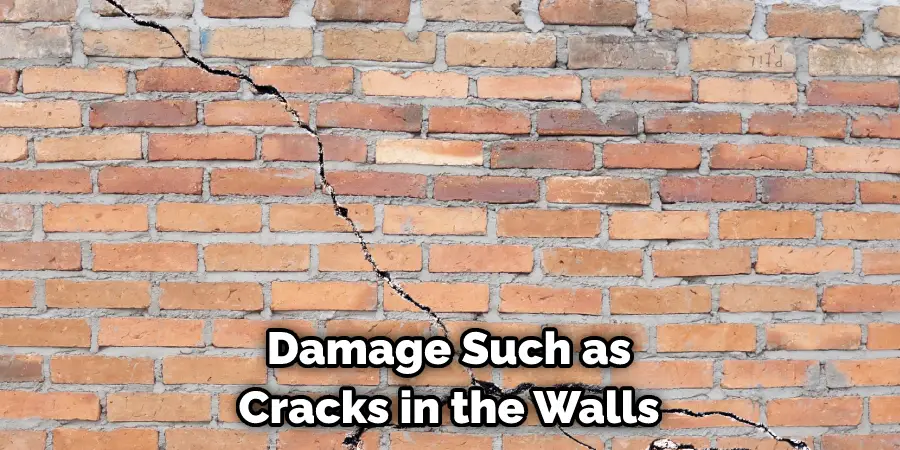
By following these tips on how to enclose your patio for the winter, you can ensure that your space is properly protected from the elements and is comfortable for you to enjoy during the cold winter months. With these steps, you can help ensure that your patio enclosure will be a safe and efficient space for many winters to come.
Frequently Asked Questions
What Precautions Should I Take Before Enclosing My Patio for the Winter?
Before enclosing your patio, it is important to inspect the area and make sure there are no potential problems that could arise from doing so. Make sure that all screws, nails, or other fasteners used to secure the materials will not cause damage over time.
Check for any obstructions like overhanging tree branches or low-hanging power lines. Ensure that the materials used are strong and able to withstand any winter storms that may come your way.
What Types of Materials Can I Use to Enclose My Patio?
The most common materials used for enclosing a patio include plastic, metal, wood, and glass. Each material has its own advantages and disadvantages when it comes to winterizing your patio area.
Plastic is usually the most cost-effective option, but it’s also not as durable as some of the other choices. Metal is a very sturdy and long-lasting material, but it can be more expensive than plastic or wood. Wood is typically the most aesthetically pleasing option, but it requires regular maintenance and can be more susceptible to rot and decay.
Is It Safe to Use an Outdoor Heater on My Enclosed Patio?
Yes, using an outdoor heater on your enclosed patio is safe. However, it is important to make sure that the heater is in a well-ventilated area and that all of the proper safety precautions have been taken.
This includes ensuring that there are no flammable items or materials nearby and that the heater is far enough away from any walls or furniture that could ignite.
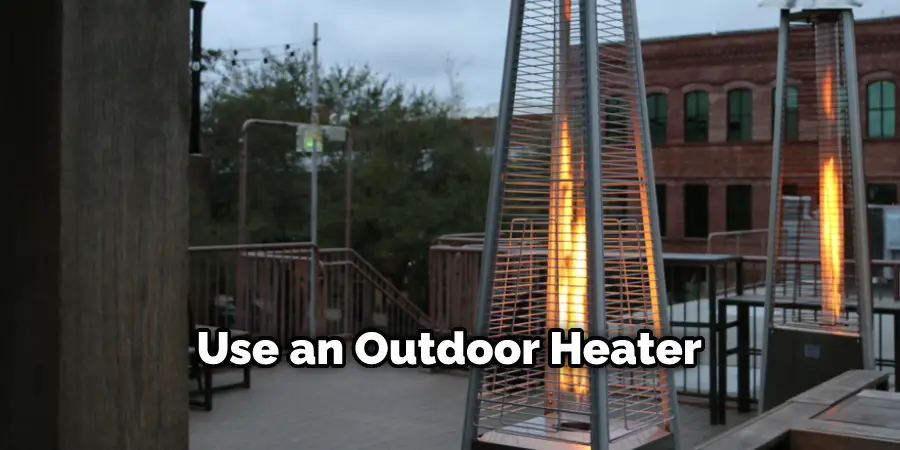
Conclusion
Following these steps, you can enclose your patio and enjoy it all winter long. It has a wide selection of winter-friendly furniture and decor to make your outdoor space cozy and inviting. So don’t wait – start planning your dream patio enclosure today.
Now that you know how to enclose your patio for the winter, you can enjoy all your favorite outdoor activities without worrying about the cold weather. By following these simple steps, you can keep your patio in great condition and make it a comfortable space for entertaining guests or spending time with family.
So what are you waiting for? Get started on enclosing your patio today!
About
Outdoor Fixes is a distinguished figure in the world of Diy design, with a decade of expertise creating innovative and sustainable Diy solutions.
His professional focus lies in merging traditional craftsmanship with modern manufacturing techniques,
fostering designs that are both practical and environmentally conscious. As the author of diy,
outdoorfixes delves into the art and science of outdoorfixes-making, inspiring artisans and industry professionals alike.
Education RMIT University
(Melbourne, Australia) Associate Degree in Design (Outdoor Fixes) Focus on sustainable design, industry-driven projects,
and practical craftsmanship. Gained hands-on experience with traditional and digital manufacturing tools, such as CAD and CNC software.
Nottingham Trent University
(United Kingdom) Bachelor’s in outdoorfixes.com and Product Design (Honors) Specialized in product design with a focus on blending creativity with production
techniques. Participated in industry projects, working with companies like John Lewis and Vitsoe to gain real-world insights.
Publications and Impact
In diy, Outdoor Fixes his insights on indoor design processes, materials, and strategies for efficient production.
His writing bridges the gap between artisan knowledge and modern industry needs, making it a must-read for both budding designers and seasoned professionals.

